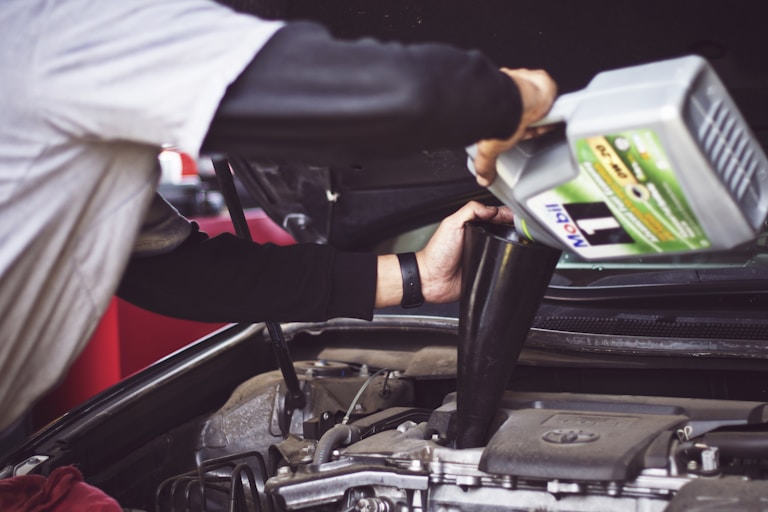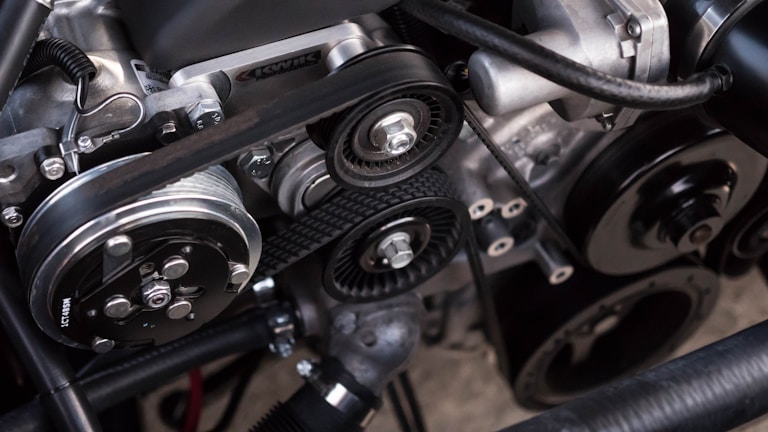
California’s Strong Lemon Law Protections
California has some of the most comprehensive lemon law protections in the nation, designed to help consumers who purchase or lease defective vehicles. The California Lemon Law, formally known as the Song-Beverly Consumer Warranty Act, provides powerful remedies for buyers and lessees of new and used vehicles that fail to meet warranty standards despite reasonable repair attempts.
When you buy a vehicle in California, you have the right to expect it will work properly and be free from substantial defects. If your vehicle has recurring problems that significantly impair its use, value, or safety, you may be entitled to a replacement vehicle or full refund under California’s lemon law. AskLitigation connects you with experienced attorneys who understand California’s unique lemon law provisions and can help you navigate the complex process of seeking relief.
What Vehicles Are Covered?
California’s lemon law covers a broader range of vehicles than many other states, providing protection for various types of automotive purchases and leases:
New Vehicles: All new cars, trucks, SUVs, motorcycles, and recreational vehicles purchased or leased in California are covered if they come with a manufacturer’s warranty. This includes vehicles purchased from authorized dealers as well as those bought directly from manufacturers.
Used Vehicles: California extends lemon law protection to used vehicles if they’re still covered by the original manufacturer’s warranty or if the dealer provides a written warranty. This unique protection helps used car buyers who discover defects shortly after purchase.
Leased Vehicles: Both new and used leased vehicles qualify for lemon law protection under the same standards as purchased vehicles. Lessees have the same rights to replacement or refund as buyers when vehicles fail to meet warranty standards.
Certified Pre-Owned Vehicles: Vehicles sold through manufacturer certified pre-owned programs typically qualify for lemon law protection because they come with extended manufacturer warranties.
Understanding California’s Lemon Law Requirements
To qualify for relief under California’s lemon law, several conditions must be met, but the state’s consumer-friendly approach makes these requirements more accessible than in many other jurisdictions.
Substantial Defect: The vehicle must have a defect or condition that significantly impairs its use, value, or safety. This includes mechanical problems, safety issues, or manufacturing defects that affect the vehicle’s operation or value.
Reasonable Repair Attempts: You must give the manufacturer or authorized dealer a reasonable opportunity to repair the defect. Generally, this means four repair attempts for the same problem, or two attempts if the defect could cause death or serious injury, or the vehicle has been out of service for 30+ days for warranty repairs.
Warranty Coverage: The defect must be covered by the manufacturer’s warranty, and repair attempts must occur during the warranty period. However, problems that develop during warranty coverage remain covered even if the warranty expires before resolution.
Proper Notice: You must notify the manufacturer about the defect and provide opportunities for repair. California law requires specific notification procedures, but courts generally interpret these requirements favorably to consumers.
California’s Unique Lemon Law Benefits
California provides several advantages for consumers that go beyond federal lemon law minimums and many other state protections:
Attorney’s Fees: If you prevail in a lemon law case, the manufacturer must pay your reasonable attorney’s fees and costs. This provision makes it financially feasible to pursue legitimate claims without worrying about legal expenses.
Used Vehicle Coverage: Unlike most states, California’s lemon law covers used vehicles under certain circumstances, providing protection for consumers who can’t afford new vehicles but still deserve reliable transportation.
Broad Definition of Defects: California courts interpret “substantial defect” broadly, potentially including problems that might not qualify in other states. This includes issues affecting comfort, convenience, or value, not just safety or operability.
Civil Penalties: In addition to replacement or refund, California law allows for civil penalties up to twice the actual damages when manufacturers willfully violate lemon law requirements.
Towing and Rental Coverage: California manufacturers must reimburse reasonable costs for towing and rental vehicles during repair periods, reducing the financial burden on consumers dealing with defective vehicles.
The California Lemon Law Process
Successfully pursuing a lemon law claim in California involves several steps, each with specific requirements and deadlines that must be carefully followed:
Documentation Phase: Maintain detailed records of all problems, repair attempts, communications with dealers and manufacturers, and time the vehicle spends in the shop. California courts rely heavily on documentation to establish the pattern of defects and repair attempts.
Manufacturer Notification: Provide written notice to the manufacturer about ongoing problems and request resolution. California law requires specific notice procedures, including sending letters to designated addresses and allowing reasonable time for response.
Final Repair Opportunity: Give the manufacturer one final chance to repair the vehicle after proper notice. This step is crucial because failure to allow this opportunity can defeat otherwise valid claims.
Arbitration Consideration: Many manufacturers require arbitration before court proceedings. While arbitration can be faster and less expensive than litigation, consumers aren’t bound by unfavorable arbitration decisions and can still pursue court remedies.
Legal Action: If other remedies fail, filing a lawsuit may be necessary to obtain relief. California’s attorney fee provisions make litigation feasible for consumers with legitimate claims.
Remedies Available Under California Law
California’s lemon law provides comprehensive remedies designed to make consumers whole when they’re stuck with defective vehicles:
Replacement Vehicle: Consumers can choose a comparable new vehicle of the same make and model. The manufacturer must provide a vehicle with similar features, accessories, and options, though some adjustments may be made for mileage or use.
Full Refund: Instead of replacement, consumers may choose a complete refund including the purchase price, down payment, monthly payments, finance charges, license fees, registration costs, and other official fees. The manufacturer may deduct a reasonable allowance for use before the first repair attempt.
Incidental Costs: Reimbursement for additional expenses caused by the defective vehicle, including towing, rental cars, lodging, meals, and telephone costs related to seeking repairs or resolution.
Civil Penalties: When manufacturers act willfully or in bad faith, consumers may recover up to twice their actual damages as a penalty for the manufacturer’s conduct.
Attorney’s Fees: Successful consumers are entitled to reasonable attorney’s fees and costs, making it possible to pursue claims without financial risk.
Common Defects in Lemon Law Cases
California lemon law cases involve a wide variety of vehicle defects that can substantially impair use, value, or safety:
Engine and Transmission Problems: Issues with major powertrain components that affect vehicle performance, fuel economy, or reliability. These problems often require multiple repair attempts and extended shop time.
Safety System Failures: Problems with brakes, steering, airbags, seatbelts, or other safety equipment that could cause accidents or injuries. California law provides expedited procedures for safety-related defects.
Electrical System Issues: Modern vehicles rely heavily on electronic systems, and problems with computers, wiring, or electronic components can cause multiple symptoms and prove difficult to diagnose and repair.
Paint and Body Defects: Issues with paint quality, rust, or body panel alignment that significantly affect the vehicle’s appearance and value. California recognizes that these problems can substantially impair a vehicle’s value even if they don’t affect operation.
Air Conditioning and Comfort Systems: Problems with climate control, seats, windows, or other comfort features may qualify for lemon law relief, especially in California’s climate where air conditioning is essential.
Working with Experienced Lemon Law Attorneys
California’s lemon law is complex, with specific procedures and deadlines that must be followed precisely. Manufacturers have experienced legal teams focused on minimizing their exposure, making professional representation crucial for consumers seeking fair resolution.
Experienced lemon law attorneys understand manufacturer tactics, know how to document cases properly, and can navigate the arbitration and litigation processes effectively. Because California law requires manufacturers to pay attorney’s fees for successful claims, consumers can obtain quality representation without upfront costs or financial risk.
The right attorney will evaluate your case objectively, advise whether it meets lemon law requirements, and develop a strategy for obtaining the best possible outcome. They’ll handle communications with manufacturers, ensure proper documentation, and advocate for your interests throughout the process.
Protecting Your Lemon Law Rights
If you suspect your vehicle may qualify as a lemon, taking proper steps early in the process protects your rights and improves your chances of success:
Keep detailed records of every problem, including when it occurs, how it affects vehicle operation, and any safety concerns. Document every repair attempt with dates, descriptions of work performed, and parts replaced. Save all paperwork including repair orders, invoices, and correspondence with dealers or manufacturers.
Follow manufacturer warranty procedures exactly, taking your vehicle to authorized dealers for repairs and allowing reasonable time for completion. Avoid unauthorized repairs that might give manufacturers grounds to deny warranty coverage.
Don’t accept excuses or delays from dealers or manufacturers. If problems persist after reasonable repair attempts, seek legal advice promptly. California’s lemon law has specific time limits and procedural requirements that must be met to preserve your rights.
Get Help with Your California Lemon Law Case
If you’re dealing with a defective vehicle in California, don’t let manufacturers take advantage of you. California’s lemon law provides strong protection for consumers, but navigating the process requires knowledge of specific procedures and requirements. AskLitigation connects you with experienced lemon law attorneys who understand California’s unique laws and can help you obtain the relief you deserve. Contact us today for a free consultation about your potential lemon law claim.
Types of Lemon Law We Handle in California:
Start Your FREE Consultation
Complete the form for a Free Consultation. No upfront fees, swift action, and we’re only paid when we succeed for you.
Ask Us If You Qualify
We’re here to help you take on your fight—whether it’s a car accident, a dangerous drug, or a workplace injury gone wrong. One call starts it all, and we’re with you every step, no upfront cost required.
- Free Case Review
- No Fees Until Victory
- Millions Recovered
- Personal Strategy
- California Coverage
- Relentless Case Pursuit


